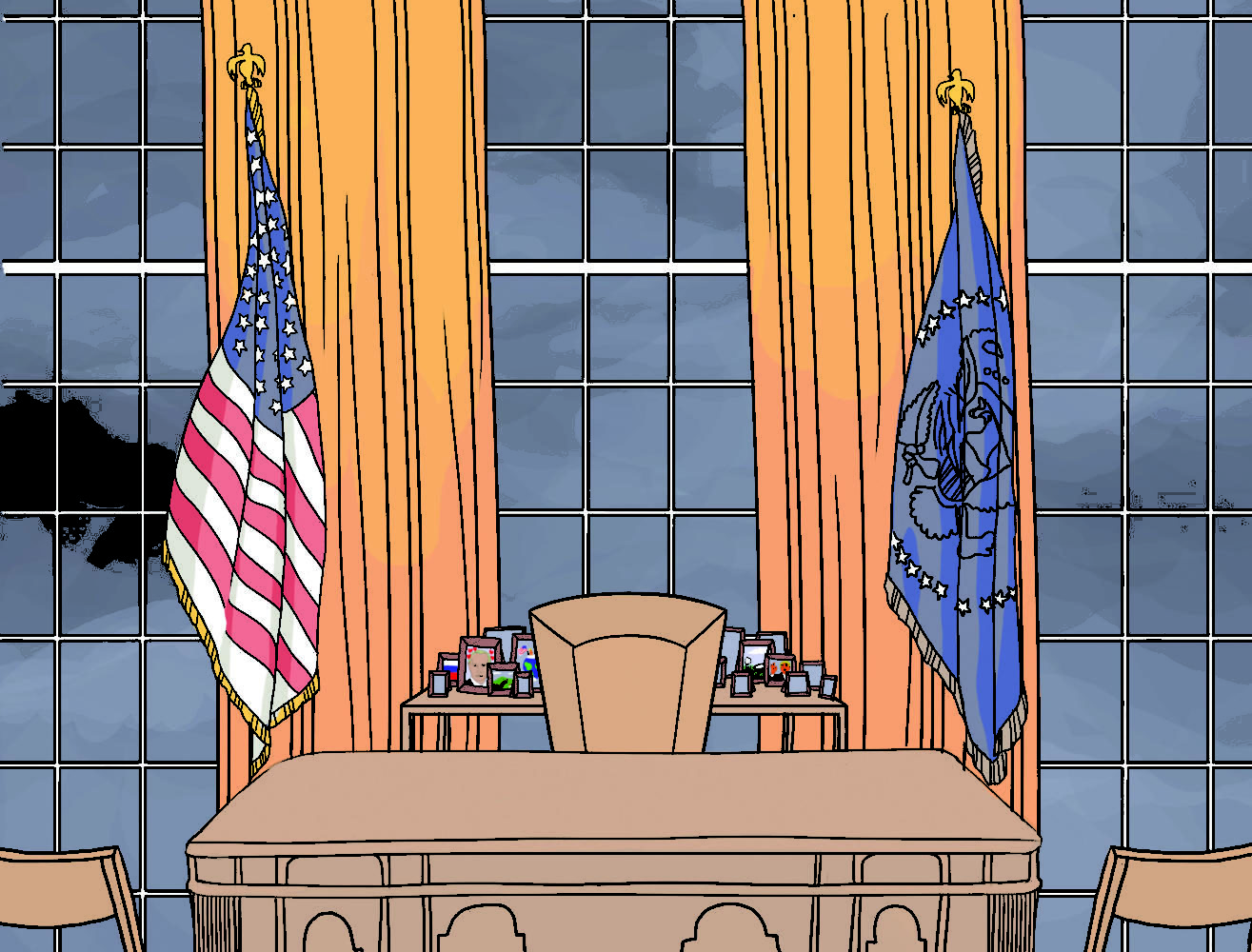Trump’s First 100 Days
A brief overview of President Trump’s first 100 days in office
Immigration
One of President Trump’s most controversial executive orders, the travel ban, initially issued on Jan. 27, called for an indefinite ban on travelers and prospective U.S. citizens from seven majority Muslim countries: Iraq, Iran, Syria, Yemen, Somalia, Sudan and Libya. Trump claimed that the ban was implemented in an effort to combat terrorism and protect national security; however, he did not seek legal guidance from the Justice Department before the travel ban was implemented, and few instructions on how to enforce ban were given to the Department of Homeland Security. This ultimately led to chaos and confusion, as it became unclear if Green Card holders were exempt from the travel ban. Seeing as the original order was deemed unconstitutional, revisions were made shortly following the implementation of the ban. Even so, a federal judge in Hawaii succeeded in blocking Trump’s order. As of now, travelers are no longer banned from entering the country, but visas are no longer issued to those from the countries listed on the travel ban (excluding Iraq since the Iraqi government has agreed to work with the White House on fighting terrorism), and refugees are still denied admission into the U.S.
Health care
The Mexico City Policy, also known as the global gag rule, was reinstated by President Trump during his first day in office. This policy has been called the global gag rule because of the “suffocating” restrictions it places on organization, and it was first introduced in 1984 during Reagan’s presidency. The policy does not allow federal funding for family planning services to non-governmental organizations that offer abortion services to women. Trump’s executive order is not new to the political scene — ever since Reagan introduced the policy, every Republican president has reinstated it, while every Democratic president has rejected it. Trump, however, has called for more expansive changes than previous administrations have, and this has been an area of concern and confusion for several health organizations and women. Previously, the policy restricted government funding to family planning services to organizations offering abortion, but Trump’s version cuts off all global health funding, including services that combat HIV/AIDS and promote maternal and child health.
Foreign policy
Throughout his campaign and during his inauguration speech, President Trump claimed that his foreign policy agenda would put “America first,” meaning that the U.S. would adopt a more isolationist policy stance and stay out of international affairs. However, on April 4, the Syrian government used chemical weapons on its own people, which resulted in the death of over 100 Syrians. In response, Trump authorized the launch of 59 Tomahawk missiles on the Syrian airbase which harbored the warplanes used to carry out the attack. Trump’s policy decision signalled a break from his initial stance of unilateralism and isolationism. The missile strike was effective in enforcing a red line — a figurative “line in the sand” that the Syrian government should not cross — but has also caused a strain on foreign relations with Russia and Iran, two countries that are alligned with Syrian president Bashar-al-Assad and his current regime.
Environment
President Trump has made it clear that he does not believe in climate change or environmental regulations, especially when reform comes at the cost of reduced business opportunities for large corporations. So, it wasn’t surprising when Trump signed an executive order on March 28 which rolled back some of his predecessor’s policies. The executive order has called on the Environmental Protection Agency to review and modify President Obama’s Clean Power Plan, which capped emissions for power plants in order to combat climate change and to protect the environment. The order also removes a moratorium on federal coal leases, a lease granted by the government to mining companies. While experts do not believe Trump’s executive order will have an overwhelming impact on nationwide initiatives to promote sustainable and renewable energy, his actions encourage the unrestricted use of coal and oil.







